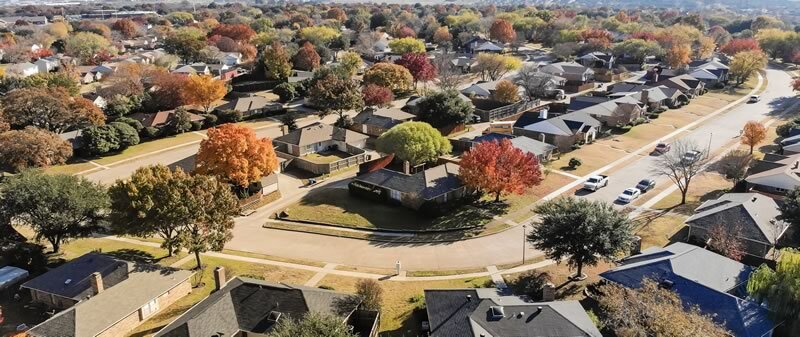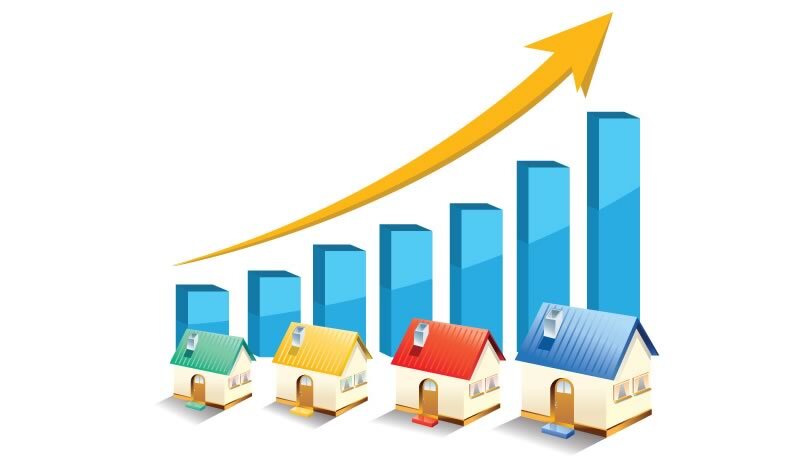3 Reasons Why Property Taxes in Texas are Higher

How Much Are Property Taxes in Texas?
According to recent research, the property tax rate in Texas is one of the highest in the USA, with the average homeowner paying around one-third more than the national average. Why is property tax in Texas higher? Find out more according to these three factors.
Reason Number One – Texas is Highly Dependent on Revenue from Property Taxes
Despite having the 6th highest property taxes in the nation, the state of Texas has an average tax burden for its citizens. Sales taxes for the state are comparatively low at 6.25% (it can reach a maximum limit of 8.25%), and Texas is one of nine states that does not have personal income taxes.
However, as taxation is a vital source of revenue for local government, the burden falls squarely on property taxation to compensate for the lack of other revenue. This money (property tax revenue) is utilized to fund essential resources and public services for Texas citizens, including public schools, libraries, emergency services, road maintenance, and community safety measures.
If property tax reform occurred, this would likely result in redistributing the tax burden by implementing state income tax or introducing higher sales tax rates to make up this shortfall. This is unlikely to occur even though it would mean tax relief on our annual property tax, as many of us enjoy the fact that there’s no income tax.
Reason Number Two – Property Values are on the Increase

How Are Property Taxes Calculated in Texas in Relation to Property Values?
Ad Valorem Tax is based on an item’s assessed value. In Texas, the specific tax laws stipulate that each county should have an appraisal district. This district is managed by a chief appraiser, whose primary responsibility is the annual appraisal of property values within the county. The process of property taxation is relatively straightforward, as it’s calculated as a percentage of the home’s assessed value. Therefore, as the value of a property increases, the corresponding property tax bill also rises. For instance, consider a residential property in Austin, Texas, appraised at a value of $250,000. The annual property tax for such a property would be approximately $4,933. However, if the value of the same property were to escalate to $275,000, the annual property tax bill would correspondingly increase to about $5,426.
With the real estate market dynamics constantly influencing property values, Texas homeowners might face unexpectedly high tax bills. If property values increase dramatically, this results in a proportional increase in property taxes. However, homeowners looking to lower their property taxes can take specific steps. If a property owner disagrees with the appraisal value or believes that their home has been overvalued, they have the right to file a formal protest. This is done first informally within the appraisal district staff. If an agreement isn’t achieved in that process, then the protest can be made formally with the Appraisal Review Board, which can lead to the property being assessed at a lower value and ultimately lower property tax. This process is essential to ensuring that homeowners are taxed fairly based on the real value of their property.
Understanding the mechanisms of ad valorem property taxes, including how they are calculated and how property values are assessed, is crucial for homeowners. This knowledge helps budget for tax expenses and navigate the avenues available for contesting overestimated property valuations.
Reason Number Three – These Taxes are Set at a Local Government Level
The State of Texas does not directly determine the property tax bills of its residents. The responsibility is firmly in the hands of local authorities. This system has its advantages, particularly in terms of keeping the decision-making power regarding tax changes within the community. However, it also means that the state government’s role in regulating or influencing property taxation is limited. The most significant actions the state can take include passing laws that tighten regulations on tax increases, enabling Texans to vote on tax hikes in their local areas, or augmenting state funding for public education, which constitutes the primary expenditure covered by property taxes.
The option for Texans to have a say in local tax increases is an important aspect of the Taxpayer Bill of Rights. It empowers every Texas resident to have direct input into decisions that affect their financial obligations. Despite this, there’s a growing concern among Texans over their rising property tax bills, exacerbated by a general sense that there is little they can do to change the situation. On the educational front, there’s a notable downward trend in the state’s contribution to school funding. The allocation of state funds to educational facilities has dropped from 45% to 38% in recent years. This shift places an additional burden on local tax authorities to compensate for the shortfall, causing them to raise property tax rates and potentially leading to a need for property tax relief measures.
For any changes to materialize, such as introducing property tax relief or altering the way local taxes are administered, the proposals need to go through the long and complex processes of debate, negotiation, and approval in the state legislature. Finally, in the most recent legislative sessions, the state of Texas passed substantial reforms and relief for Texas property owners. It remains to be seen how that relief will play out and whether it will end up as a permanent benefit to the taxpayers. The situation highlights the intricate balance between local autonomy and state oversight in Texas’s financial governance.
Property Tax Penalties are Increasing – Here’s How Property Tax Lenders Can Help
Failing to pay your property taxes on time means facing stiff property tax penalties because the local government is so reliant on this revenue source. The absolute final date for property tax payments in Texas is 31 January every year – unless you have qualified for (https://afic.co/blog/are-you-getting-your-texas-property-tax-breaks, this date is non-negotiable. Starting from February 1st, any unpaid property taxes are considered delinquent, triggering the accumulation of penalties and interest. These fines can be substantial, reaching up to approximately 48% of your original tax bill in the first year. Naturally, those already struggling to make timely payments will have little chance of meeting these growing burdens without help.
Finding yourself in this predicament can be overwhelming, especially when additional charges on your bill loom large. However, there is a viable solution to alleviate the strain of high property tax rates in Texas. American Finance & Investment Company, Inc. offers a compassionate and skilled team dedicated to resolving your property tax issues swiftly. We provide an accessible property tax loan with a tailored repayment plan, helping ease the financial stress and allowing you to regain your financial footing.
Get Help From a Property Tax Lender You Can Trust
AFIC can provide you with an instant quote by completing the form on our homepage. For qualifying properties, we can help you pay off your delinquent taxes and offer you the following benefits:
- Quick and completely online process
- No money down
- No credit check
- Free 30-day rate match
- Match competitors and beat their rate by 1%
- Avoid high penalties and foreclosure
- We pride ourselves on finding solutions to suit the unique needs of our clients. If you would like to discuss our property tax loans, please contact our experienced team at AFIC today.
